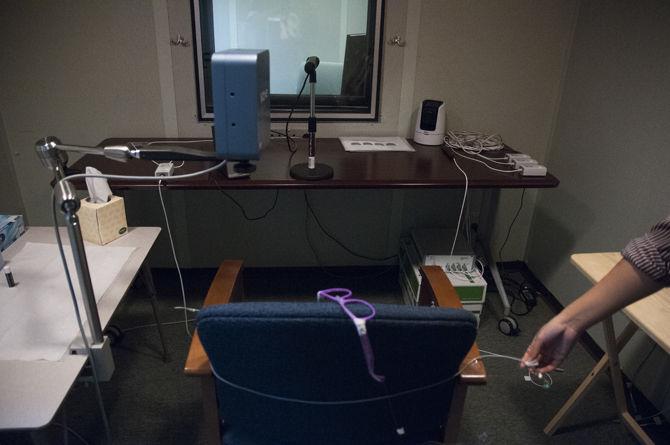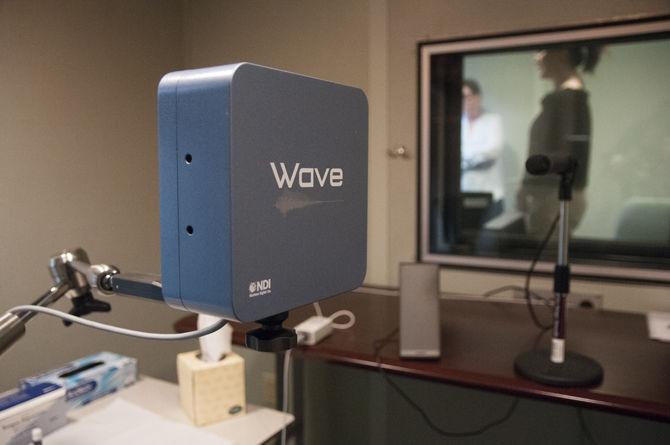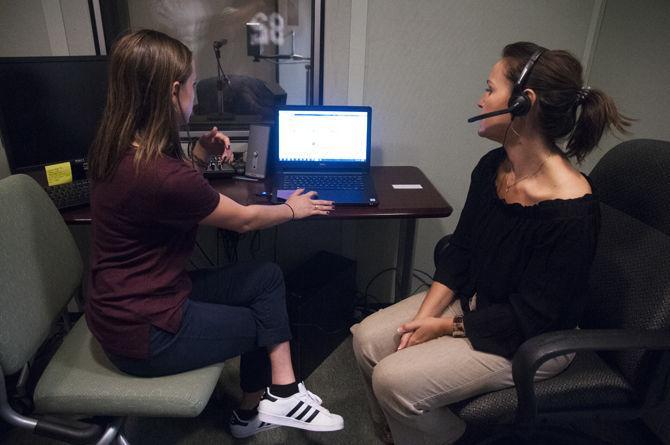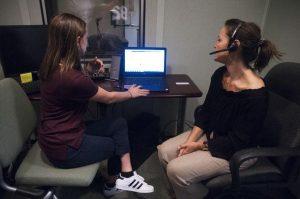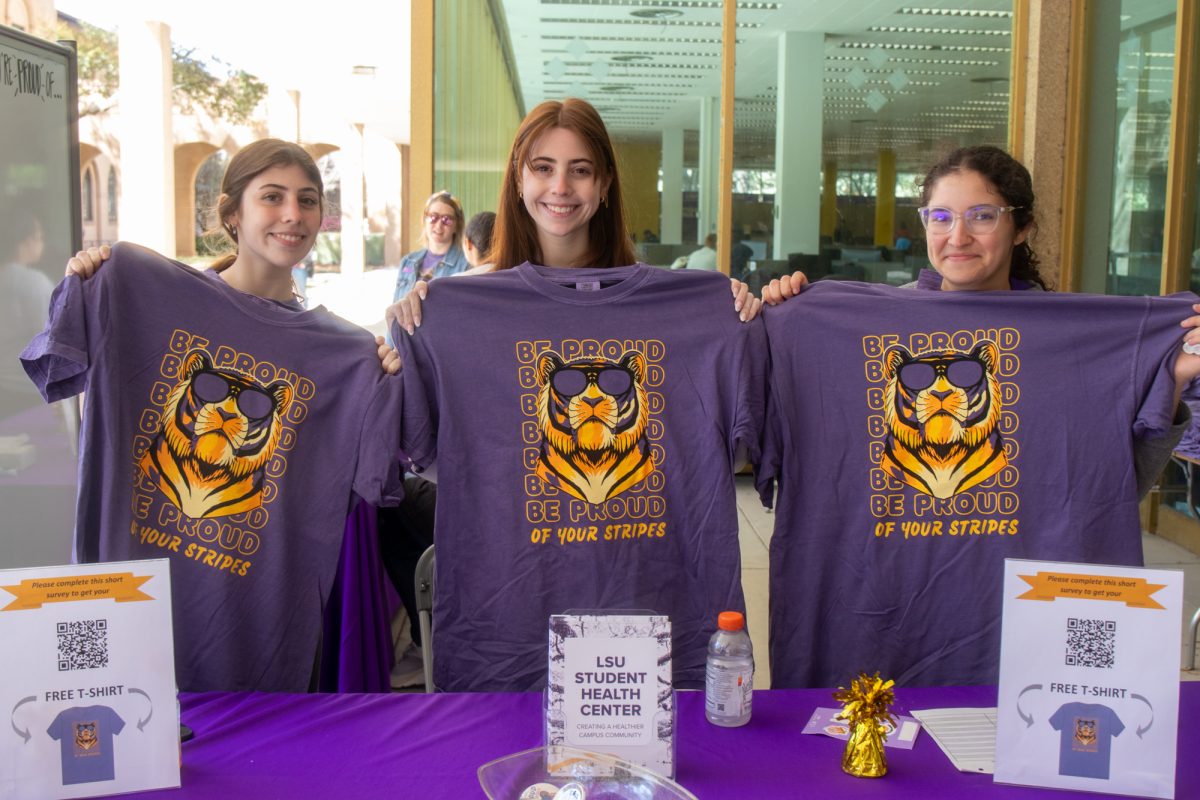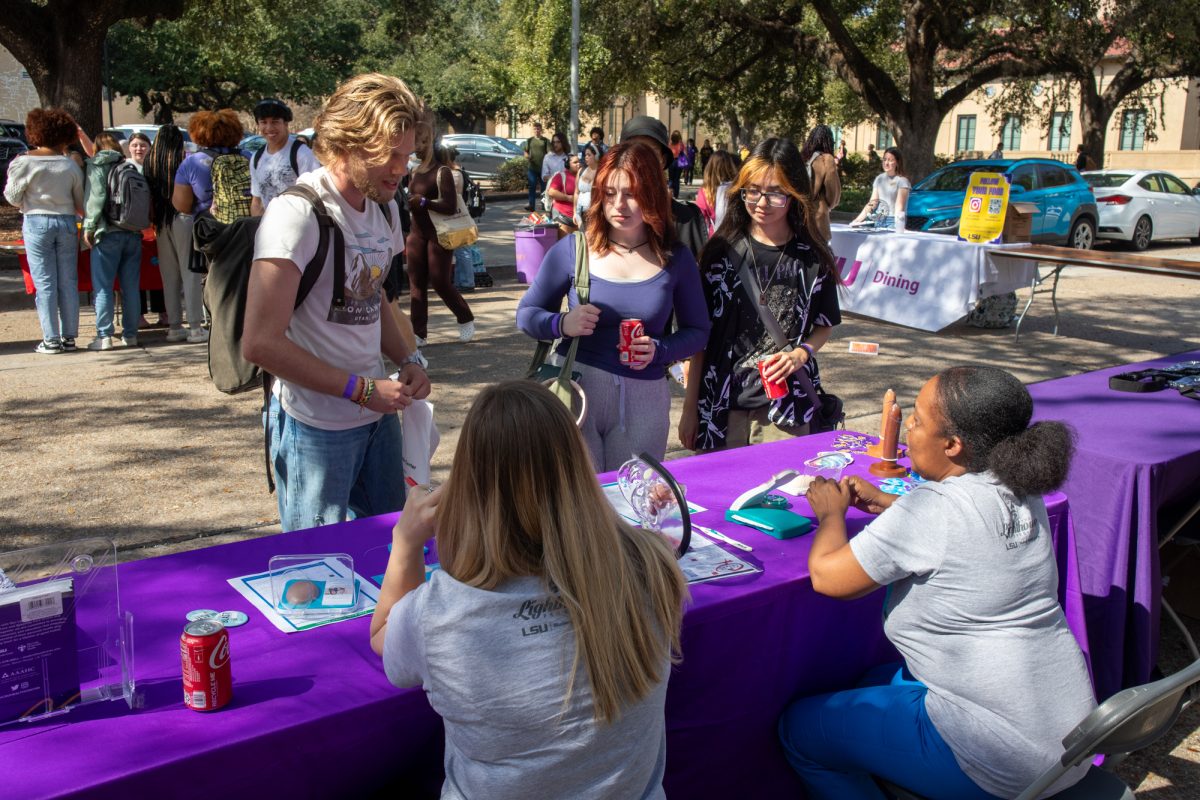A voice banking service offered by the LSU Speech, Language and Hearing Clinic allows patients suffering from amyotrophic lateral sclerosis, known as ALS or Lou Gehrig’s disease, to record their voices for future use in digital voice synthesizers.
For the past two years, the voice banking service has been aimed at recording the patient’s voice for use in digital voice synthesizers, instead of a robotic computer voice, once the disease has progressed. Speech language pathologist and clinical instructor Sara Mele said the service is geared mainly to ALS patients because the disease does not affect cognition, only the muscular ability to speak.
“What’s unique about ALS is that it is more of a muscular degeneration than a cognitive one,” Mele said. “The ability to execute decisions is still preserved. That is what allows them to use what we call an augmentative communication device.”
Diseases such as myasthenia gravis and Parkinson’s disease do not require this service because of the way they work.
“ALS is about loss of muscle fibers, so they can lose their voice,” said Yunjung Kim, associate professor and director of the LSU Speech Acoustics & Movement Lab. “Other progressive diseases don’t affect muscles that much.”
The clinic utilizes a service called ModelTalker to record a patient’s voice. ModelTalker also creates the synthetic speech recordings. The process involves the patient recording up to 1,600 sentences over the course of about a month, depending on the patient’s disease progress, Mele said. The sentences are designed so that as many sounds are recorded in as many different contexts as possible.
“When they visit the clinic, their voice is still intelligible,” Kim said. “So, after they lose their voice or speech, then they re-synthesize the segments from pieces and pieces of words and sentences to make their natural speech from their own voice.”
The process starts with the patient sitting in a quiet sound booth and doing a quick assessment with the ModelTalker software. The software monitors speech rate, volume and pronunciation during the recording process. Meanwhile, the patient also has electrodes placed on their face and tongue to measure facial movements involved in speech. Mele said the recordings are not studio quality, “just a microphone and computer.”
If a patient’s symptoms have progressed beyond the ability to speak, the patient also has the ability to bank a relative’s voice. This allows patients to avoid having to use a robotic computer voice, and allows them to use a familiar voice with similar speech patterns.
“It’s not just for those who caught the disease in time or are able to adjust to it,” Mele said. “It’s available for those who have progressed in the disease and now they’re able to utilize their son, their brother, whoever to bank their voice, if that’s what they want to do.”
Both Mele and Kim said the clinic is looking for patients with ALS or Parkinson’s disease to bank voices and conduct research.
“Patients who do have ALS, they didn’t realize that this was an opportunity,” Mele said. “[Asking] how can I be a part of anything that might not help me right now, but it could potentially change the direction of ALS.”
LSU Speech, Language and Hearing Clinic offers voice banking service to ALS patients
September 28, 2017
Speech banking equipment sits in the LSU Speech Acoustics & Movement Lab in Hatcher Hall on Tuesday, Sept. 26, 2017.
More to Discover



